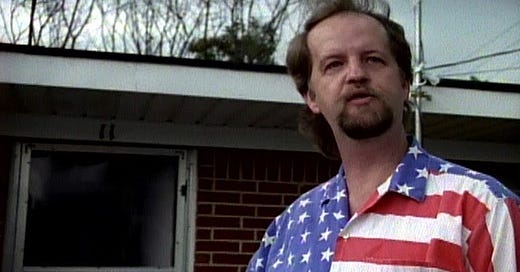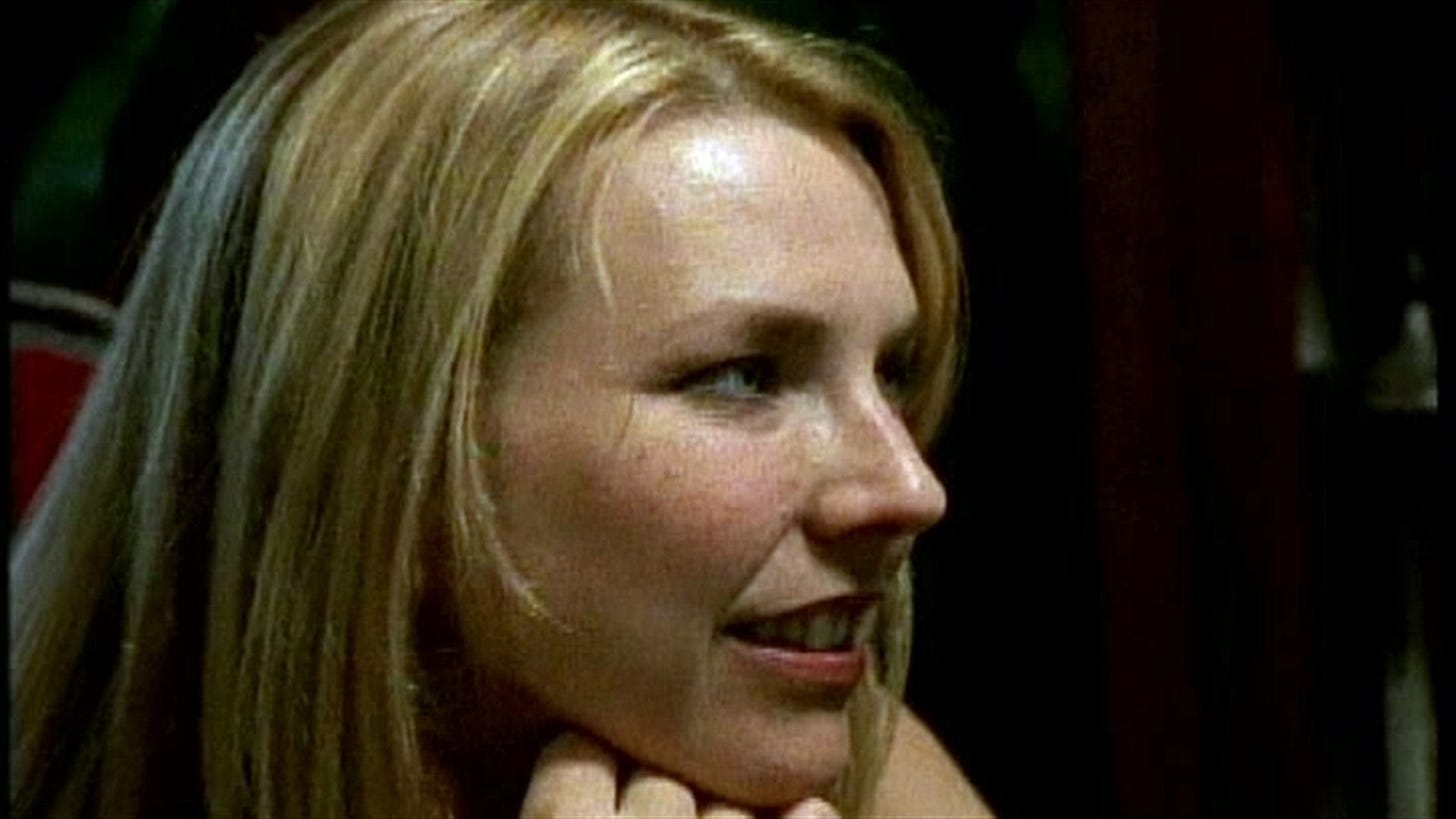'Paradise Lost 2' Was An Early Indicator Of The Pros & Cons Of Amateur True Crime Sleuths
Joe Berlinger and Bruce Sinofsky's sequel unintentionally dealt with many concerns increasingly seen today with true crime fans and documentaries.
From kid detective novels to tip lines at the end of shows like America’s Most Wanted, we’ve long been encouraged to play amateur sleuth, or at least aid in investigative cases. But the internet changed things completely by providing forums, chatrooms, and other platforms for citizens to participate in a community of pretend P.I.s. There are certainly benefits to the public helping to solve murders, free the innocent, and identify John and Jane Does, but the wider and more open the scope of such interactivity, the more chances there are for misinformation and corruptibility.
The number of documentaries involving amateur sleuths is growing for various reasons. Some of these people take up a case because of mistrust in law enforcement, which is understandable these days. Others are simply disappointed with a police investigation’s lack of closure and pick up a cold case independently, often many years later. Those stories tend to have personal ties between the crime and the wannabe detective. Then there are the true-crime fans who believe themselves to be citizen journalists, maybe podcasting or posting on social media in an attempt to be the next Serial or Nancy Grace and occasionally doing more bad than good.
Among the increase in documentaries focusing on or providing a platform for these amateurs is #Cybersleuths: The Idaho Murders, which is now streaming on Paramount+. The three-part series is all over the place and will surely frustrate anyone tuning in for the true-crime story of the four University of Idaho students slain in their home in 2022. As unsatisfying a watch as it is, the scattered messiness might be intentional, as it represents the disorder of true-crime TikTokers, YouTubers, and other new-media personalities as they cover a story like the Idaho murders. Without ethics, regulations, or tact, these online figures make a lot of noise, but that’s all it is.
Their constant speculation and insistence that all information needs to be made public immediately is dangerous on multiple levels. They can steer trolls and bullies toward innocent parties whom they propose as suspects. Their findings can taint a proper investigation. Mostly, they sensationalize tragedies for fame and financial gain. They also occasionally compete against each other, or they disagree on tactics or suggestions, leading to infighting among the community. Sometimes they even attempt to discredit one another.
The issue of disunity among the would-be-constructive true-crime fanatics is addressed even more in another new documentary, Patricia E. Gillespie’s They Called Him Mostly Harmless, which premieres this week on Max. The feature film chronicles the story of a man found dead in the woods of South Florida in 2018 and the efforts by law enforcement, the hiking community, and members of Facebook groups and other forums for internet crimebusters. While some of the story’s positive results can be credited to the assistance of amateur participants in the case, the film also showcases serious mistakes and toxic behavior that threaten the integrity of the hobby while creating abusive situations for both involved and uninvolved individuals.
While this all seems like a recent matter among true-crime aficionados and the documentaries including their stories, Joe Berlinger and Bruce Sinofsky foresaw such issues almost 25 years ago. The duo had already proven to be pioneers of true-crime documentaries with their 1992 feature Brother’s Keeper and their famous HBO film Paradise Lost: The Child Murders at Robin Hood Hills. They later earned an Oscar nomination for the second sequel to the latter, Paradise Lost 3: Purgatory. Today, Berlinger continues to be a major player in the genre as both a director and a producer (Sinofsky died in 2015). Many of these works are considered landmarks among true crime documentaries, yet there is one that is often overlooked among their filmographies that I think is just as notable and maybe the most fascinating.
Broadcast on HBO in March 2000, Paradise Lost 2: Revelations was at the time a rare documentary sequel. The made-for-cable feature continues the story of the first Paradise Lost, which presents the case of three eight-year-old boys murdered and mutilated in West Memphis, Arkansas, in 1993 and the trial of three teenagers accused of committing the crime. Five years after the teens’ conviction, Paradise Lost 2 also involves the aftermath of the original Paradise Lost documentary. As the sequel covers the appeal process for Damien Echols, in particular, Berlinger and Sinofsky introduce representatives of a legal defense support group who became inspired after watching the first film to advocate for the release of the West Memphis Three, as the allegedly wrongfully convicted young men were then labeled.
Many of these supporters met online through the group’s website, which argued against the findings of the trial and struck up the cause to free the West Memphis Three. In Paradise Lost 2, there is a hint of other forums and two scenes featuring a chat room devoted to discussion of the case. These are forebears of today’s social media groups and channels, and other internet communities for true crime fans, including Websleuths, which launched the year this documentary was released and initially featured threads and chats on only a handful of cases, including the murder of JonBenet Ramsey and the trials of the West Memphis Three.
Those two cases were significant to the early days of online true-crime fandom because of their timing. Ramsey was killed at the end of 1996, immediately becoming an obsessed-over story in the media, and the first Paradise Lost film introduced HBO subscribers to the West Memphis murders and the idea that Echols, Jason Baldwin, and Jessie Misskelley Jr. were innocent of the crime. With both cases unsolved, rumors and speculation ran rampant, and with internet usage accelerated in the late ‘90s, whispers became conversations. Theories and accusations, no matter their likelihood of truth, found their way into digital print and could be shared easily.
Sadly, 30 years later, both murder cases remain unsolved, but at least with the West Memphis story, the widespread attention and interest, much of it online, ultimately led to the release of the clearly innocent — but still not officially not guilty — trio of Echols, Baldwin, and Misskelley. Their freedom came more than 10 years after the premiere of Paradise Lost 2, but the film shows that the original documentary got the ball rolling on that outcome by delivering doubt to the minds of the public. In that regard, the online discourse had a positive impact, even if by the end of Paradise Lost 2, the West Memphis Three support group doesn’t seem to have helped much. The men are still in prison, Echols remains on death row, and the latest major piece of evidence against their guilt, that their teeth don’t match bite marks on one of the bodies, is brought about separately from them and isn’t given much weight in court.
Keep reading with a 7-day free trial
Subscribe to Nonfics to keep reading this post and get 7 days of free access to the full post archives.





